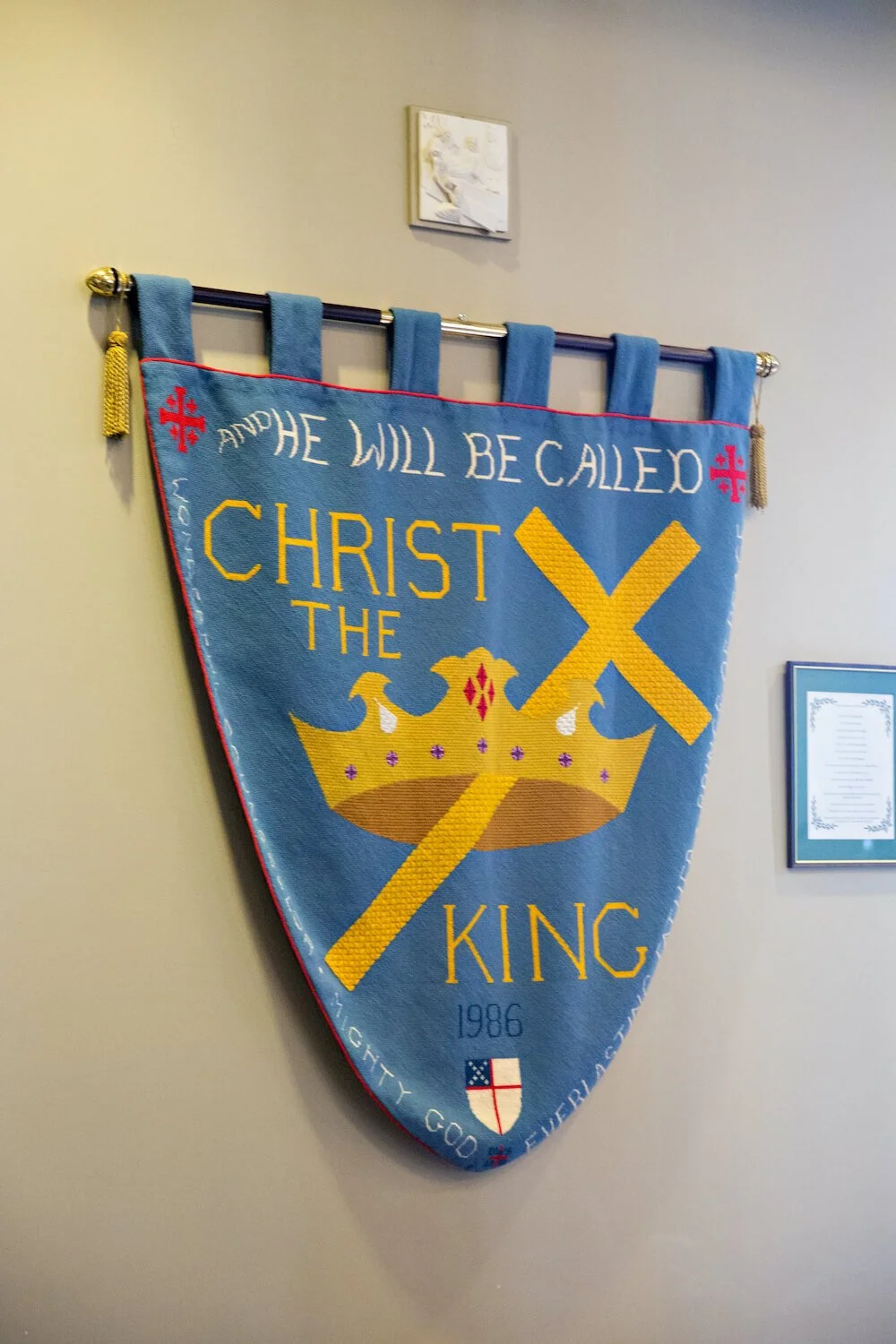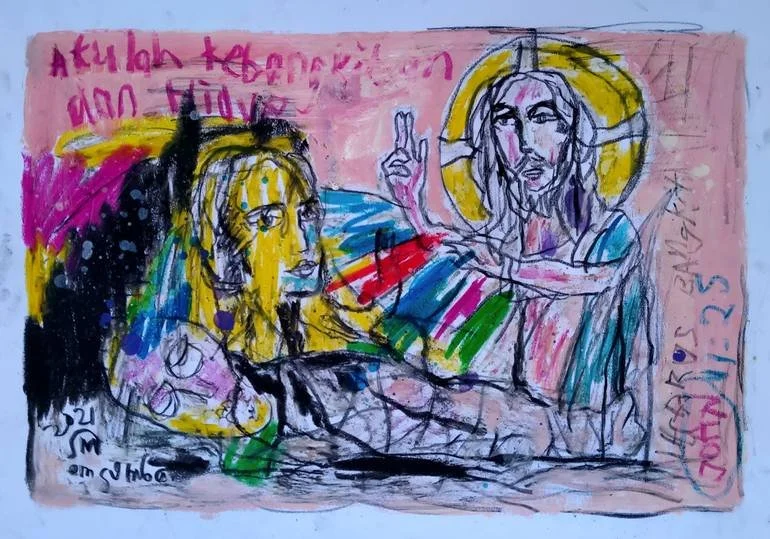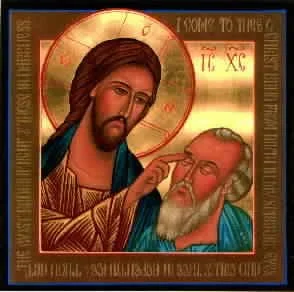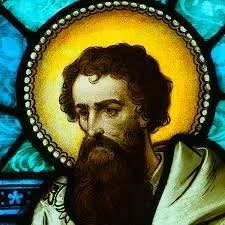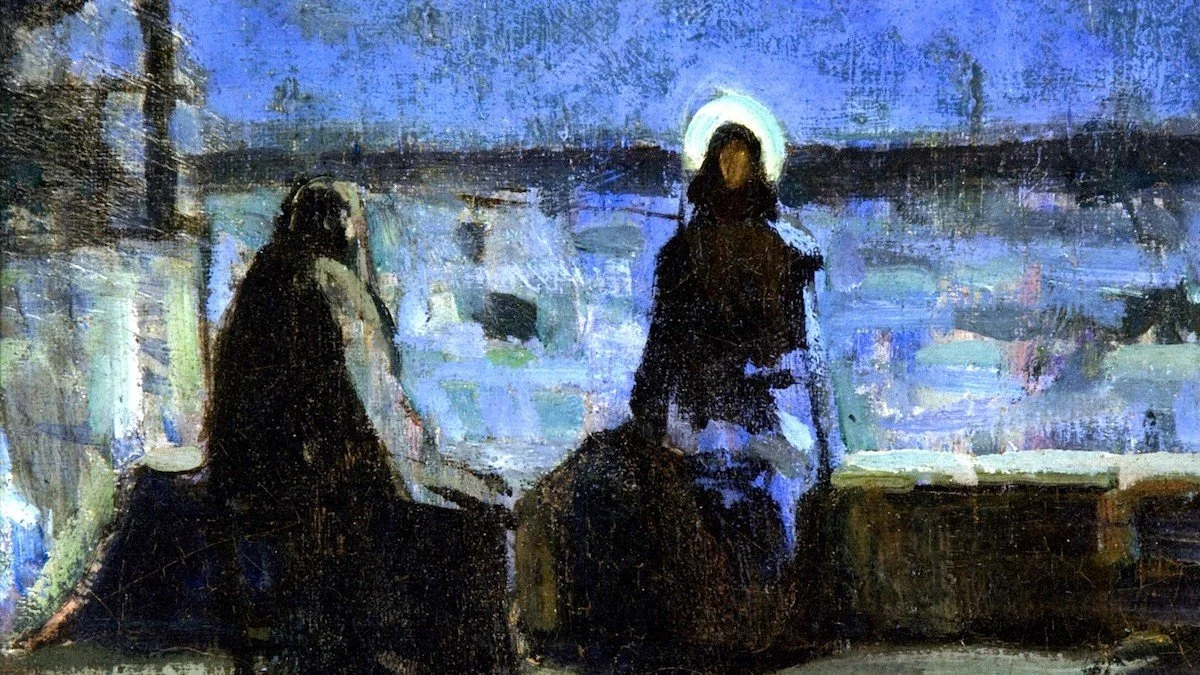When folks who haven’t been to Christ the King since before Covid find their way back here, they emphatically observe how much has changed since they were last here. It’s a helpful perspective for us to have. The changes that have happened over the past few years – namely the new school building, the renovated education building, the labyrinth, and the large number of children and youth in our midst - are much more impactful when seen all at once.
But these changes have been a long time coming. When I arrived here eight years ago, the primary two priorities that Christ the King had articulated was a desire to build a new school building and to build a thriving children and youth program. But much structural, relational, and strategic work needed to be done for these two goals to be realized.
If we look at the two primary initiatives – the building of a stand-alone parish day school building and the establishment of a professionally-staffed and adequately funded Family Faith Formation program – three things had to happen. And it is interesting that the exact same “formula” was followed for both initiatives.
First, the wider parish community had to collectively articulate the desire and need for these initiatives. In 2016-2017, we undertook a parish-wide Strategic Visioning Process with the Episcopal Church Foundation to gain clarity in our sense of identity and mission. That process gave us data to help clarify and focus what we had already suspected - our school was going to need a new, stand-alone building in order for both our school and our Sunday and weekday Christian Formation programs to simultaneously thrive.
Then in 2018, we engaged with Ministry Architects to help us gain clarity and a strategy around our desire to grow our programming for children and youth. This was a parish-wide initiative, which was important to make sure that all of us – not just our young families – were committed to this ministry.
Once we achieved clarity of goals in these two cases, we had to have seed money in order for both of these initiatives to begin. In the case with the school building, we had already received the 10 acres and a matching $250,000 gift prior to my arrival. And we subsequently received another $2 million in seed money from generous donors who were committed to seeing this daunting project through. In the case with the Family Faith Formation program, we received a start-up gift of $100,000 to give that ministry a jump-start. Neither of these two projects would have been a possibility without those initial gifts.
But in order for both of these initiatives to be fully realized, we needed more money. So, we launched the Rooted & Grounded in Love Capital Campaign to close the gap. And this process was incredibly important for us as a parish family. On a practical level, it was successful. We raised over $700,000 so that we could accomplish the goals that we identified. But this campaign has been about much more than just closing a financial gap. It allowed us to cast a wider net, and invited a wider range of financial participation as it relates to the mission and ministries of Christ the King. The bottom line is that we wouldn’t be here today without the staggering generosity, leadership, and vision of many people who helped launch and sustain the ministries we are now enjoying. But in order for Christ the King to continue not only to survive, but also to thrive, we will always need to invite more people to invest their resources in the mission and ministries of Christ the King, regardless of how much time, talent, and treasure they are able to give. As such, the Rooted & Grounded in Love capital campaign was as missional and spiritual as it was practical. And for any future goals to be realized, we will need to continue to inspire participation from a wider base. I always like to say, “just as no gift is too large, no gift is too small.”
So, that is a snapshot of the past eight years here at Christ the King, and how we got to where we are today. I think it’s important for us to identify our previous pattern of (1) the community collectively and intentionally identifying a need; (2) a large financial gift (or gifts) to serve as seed money for the project; and (3) the wider parish community rallying to close the gap and see the project through. I believe that this pattern or formula is how any future initiatives beyond our current ministries will be realized.
So, what’s next? Now that we have successfully achieved these important milestones, where do we go from here?
First, in the midst of our recent growth and expansion of ministries, I believe that we will need to continue to do the hard work of stabilizing the organizational infrastructure, systems, and protocol that will help our existing and any future ministries thrive. We will need to identify, invite, and train many more lay leaders within our parish to help us be more efficient and effective at nurturing and sustaining our ministries. These lay leaders will need support from our professional staff, which will take time and training from our already-busy schedules.
Second, as you know, Deacon Ed Richards recently retired. And due to a shortage of deacons in our diocese, we will not be assigned another one in the foreseeable future. In addition to serving in Sunday worship the primary ministry of deacons is pastoral care and outreach. Given that we do not have a staff person dedicated solely to pastoral care and outreach, we will need to explore what that looks like for us going forward.
Deacon Ed oversaw our Lay Eucharistic Visitor program, which lost its momentum during Covid and never rebounded. We currently have several parishioners who are shut-ins – either at their home or at one of the local Assisted Living Facilities. I would love for us to send out a Lay Eucharistic every Sunday after worship so that our shut-ins are able to receive communion once a month.
But the truth is, most of us are not shut-ins, having surgery or medical emergencies, or on hospice care. But all of us go through periods of loneliness, depression, or just an emotional or spiritual funk. All of us need to know that we are not alone, and that there are fellow parishioners are willing to come and visit, go out for a cup of coffee, or share a meal. All of us need to know that we matter to our fellow parishioners in our church family.
With this critically important need in mind, two of our parishioners were trained to be lay pastoral caregivers through a wonderful program similar to Stephen’s Ministry called Community of Hope International. And then Covid hit. And since then, life circumstances have prevented these two parishioners from resuming that ministry. So, as it stands right now, we have nobody who has been trained to serve in this sort of lay ministry role. I hope that some of you will prayerfully consider serving as a Lay Eucharistic Visitor and/or a lay pastoral care giver now that the emergency status of covid-19 has officially ended.
So, in terms of what is next for us here at Christ the King, my prayer is that we might be able to inspire and channel a collective desire, vision, commitment, and generosity for relational, connectional, and pastoral ministries here at Christ the King. In order for this vision to be realized, and for these ministries to be as successful and impactful as our previous initiatives, I believe that we will need to follow a formula similar to what worked for our other goals – (1) a collective desire and vision for these types of ministries; (2) a seed gift; and (3) a parish-wide commitment of time, talent, and treasure directed specifically towards this initiative.
But this is simply one idea for how we might focus our missional and financial resources in the coming years here at Christ the King. At our Annual Parish Meeting after worship today, we will break bread together as a community. And we will hear reports from various ministries of our parish. And you will have an opportunity to meet with various ministry leaders in our parish and discuss how you might get involved with what they are currently doing, as well as offer your ideas for new ministries that have yet to emerge.
Regardless of how and where we direct our energy and resources over the next few years, I strongly believe that the most important thing for us as a parish is for us to be a community that is grounded in God’s grace. Let’s not be too hard on ourselves or others. A community grounded in God’s grace is a community that gives one another the benefit of the doubt. A community grounded in God’s grace leads with gracious intentions and assumptions. A community grounded in God’s grace forgives one another often. To quote our bishop, “What we are doing here is serious stuff…but let’s not take ourselves too seriously.”
My prayer is for us to be a parish where laughter comes easy - in the pews, in the parish hall, in the office, and in the vestry room. There is enough thin skin, blaming, shaming, and finger pointing in this world right now. As Christians grounded in God’s grace, we are called to resist the urge to do the same. Our calling in much more radical than being nice to others; our calling is to be graceful to others.
As your rector, I am profoundly grateful for the grace you have shown me in our past eight years together. I know that it hasn’t always been easy. Y’all have offered me the grace to learn on the job, make mistakes, and keep moving forward. I tell people that serving as a Rector of a parish is the most challenging job I have ever had – but also the most rewarding. Through it all, it is such a blessing to have received God’s grace and yours. It is what sustains me in my ministry as a priest and as your rector. And it is by God’s grace that we will be empowered to go forward faithfully with inquiring and discerning hearts, the courage to will and to persevere, a spirit to know and to love God, and the gift of joy and wonder in all God’s works.

